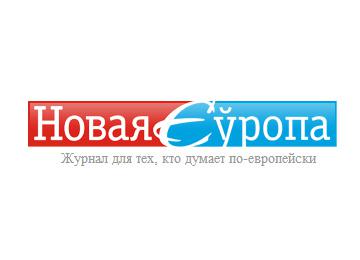Novaja Europa Deplores Lack of European Values
April 18, 2013 -
Veranika Mazurkevich
-
Books and Reviews

Novaja Europa EN.jpg
As the journal’s title clearly indicates, it is a source in which Europe is always topic for discussion. Novaja Europa (New Europe) publishes informational and analytical articles about trends in EU politics and culture, alongside coverage of regional EU strategies, the Eastern Partnership, and, of course, EU-Belarus relations.
With respect to the latter topic, namely, attempts to involve Belarusian authorities in closer cooperation or to make them respect European (read democratic) values are described as failures rather than as successes. In these conditions, EU cooperation with the Belarusian society is declared to be a priority. However, this strategy likewise seems inefficient. A number of Novaja Europa’s authors, at least in their recent online discussions, have stated that European values somehow appear to be valueless for the majority of Belarusians.
In her article about Belarusians' attitude to Europe, Adarja Huštyn states that people welcome closer integration with the EU, in principle, and are open to accept all the necessary changes in order to be closer to “prosperity and security”. They just do not know about it. The access to EU-related information is limited in Belarus, with state-controlled media only spreading negative images of the EU. Adarja Huštyn is sure that systematic promotion of EU-related information is crucial for the growth of the EU power of attraction.
Paveł Usaŭ disagrees. Under the title The Rule of the Ignorant, his article describes the situation as a bit more difficult to cope with. The author thinks that the authoritarian regime in Belarus gradually deprived the population not only of the right to be practically involved in politics, but also of any interest in the process itself. The population are not citizens, as they lack basic political culture. The society that consists of non-citizens is quite unlikely to appreciate democratic values. Therefore, Paveł Usaŭ’s conclusion is that all we need is more political and civil education, especially for younger generation.
This is still not enough for Siarhiej Nikaluk. He tries to reveal Why Belarusians Deny European Values. The reply is essentially as follows: there is a desire to refuse responsibility for any personal choice. According to the author, this feature is common for Eastern Slavic societies because it has deep roots in Orthodox traditions. In this case, we deal with a complex cultural paradigm, which is quite difficult to modify.
All three texts describe Belarusian society as quite reluctant to easily acquire European democratic values, but the responsibility for this state of affairs is ascribed to fundamentally different factors. If the first reason mentioned, the lack of information, is the feature of one concrete authoritarian regime, the other two relate to a much wider historical and cultural context (such as the Soviet past or Orthodox religion).
This context can be found, at least some aspects, in any Eastern Partnership country. Recent developments in Ukraine or Georgia only supply more food for thought. There definitely is something that makes the majority of people in this part of the world distinguish “our values”, from “European” norms. Hardly anyone would deny that Belarusians, Ukrainians, and Moldavians consider their countries European only in a very wide geographical context. However, even the most passionate supporters of historical-cultural type theory and Orthodox civilisation exclusiveness have to accept that political process does not necessarily reflect cultural or even axiological paradigms of the respective societies in question, especially those at the edge of a “cultural type.” It is agency that matters. Wider positive images of a united Europe in the media, education, along with closer business and person-to-person contacts are all factors in making democratic values popular among EU eastern neighbours as long as there is a possibility to make practical use of them.
Novaja Europa is an internet-journal, specialising in EU-related topics. It was created in 2006 by Belarusian analysts, experts, and journalists in order to "spread information and stimulate debate about the EU, promote European education among a new generation of intellectuals who share European values and sees Belarus as a part of Europe”. The review was written within the Free Speech Partnership programme supported by the Visegrad Fund.

































